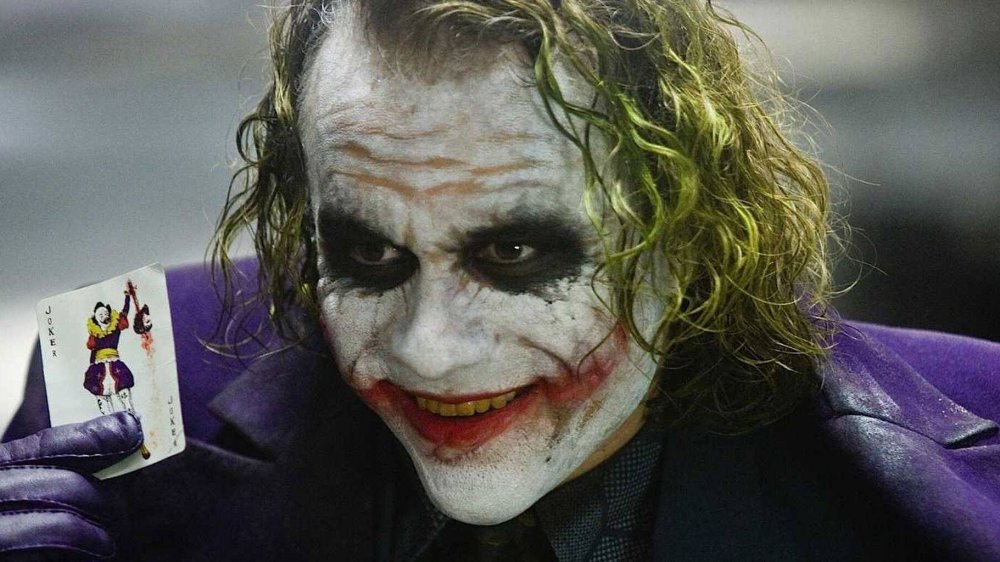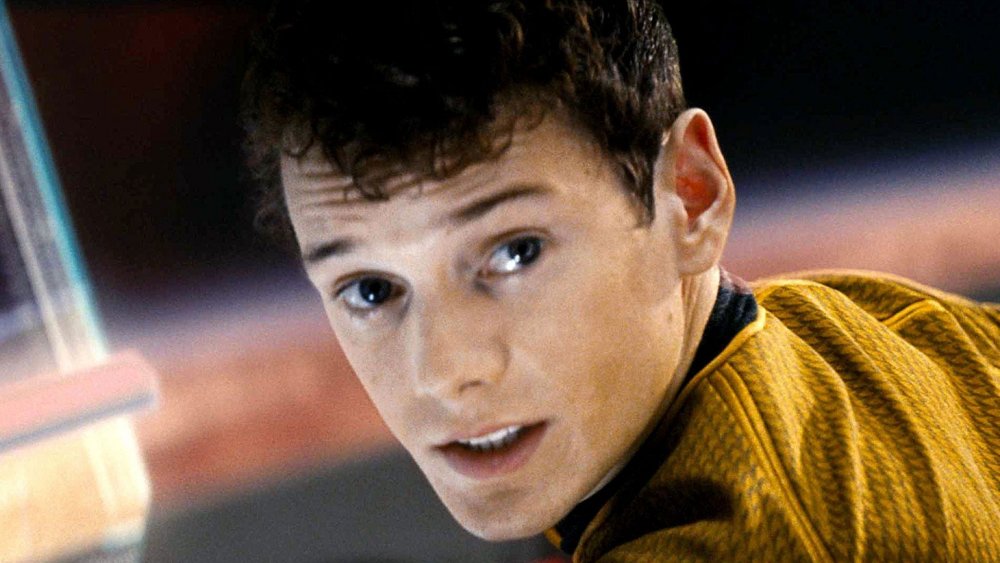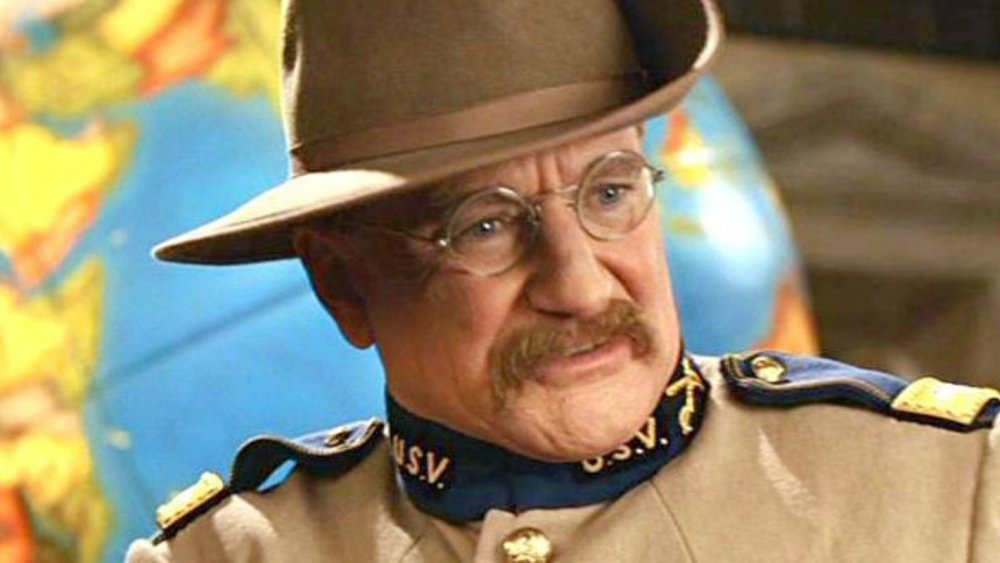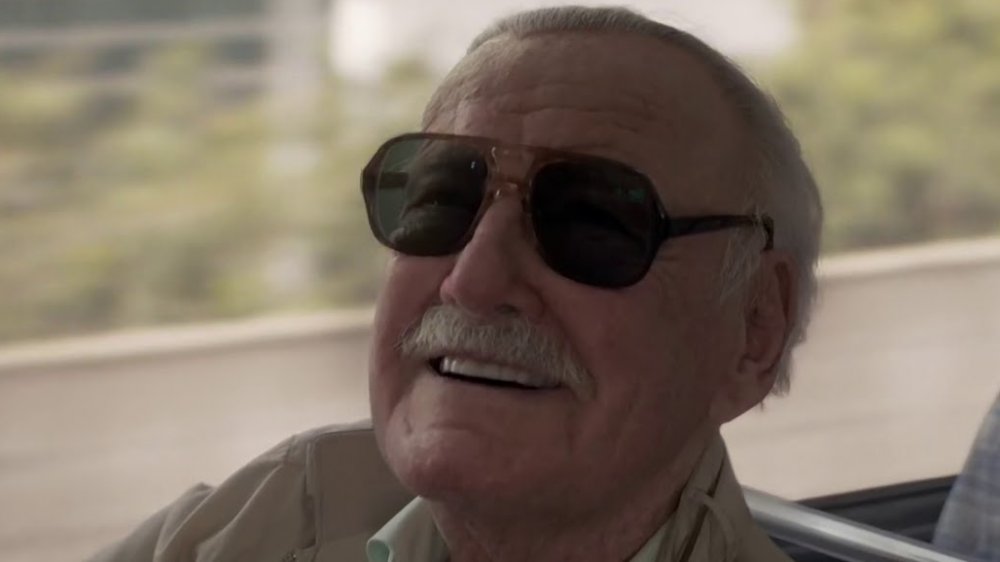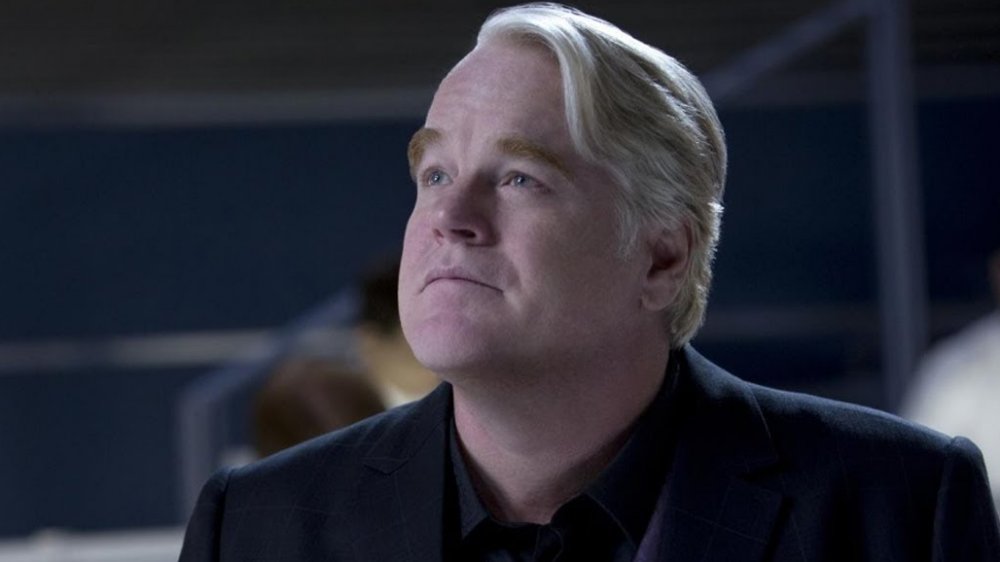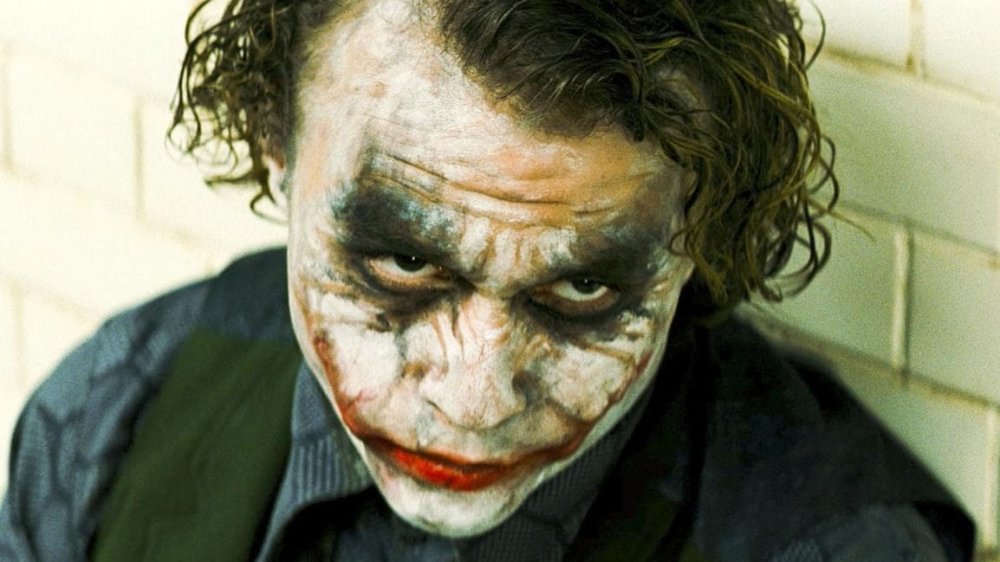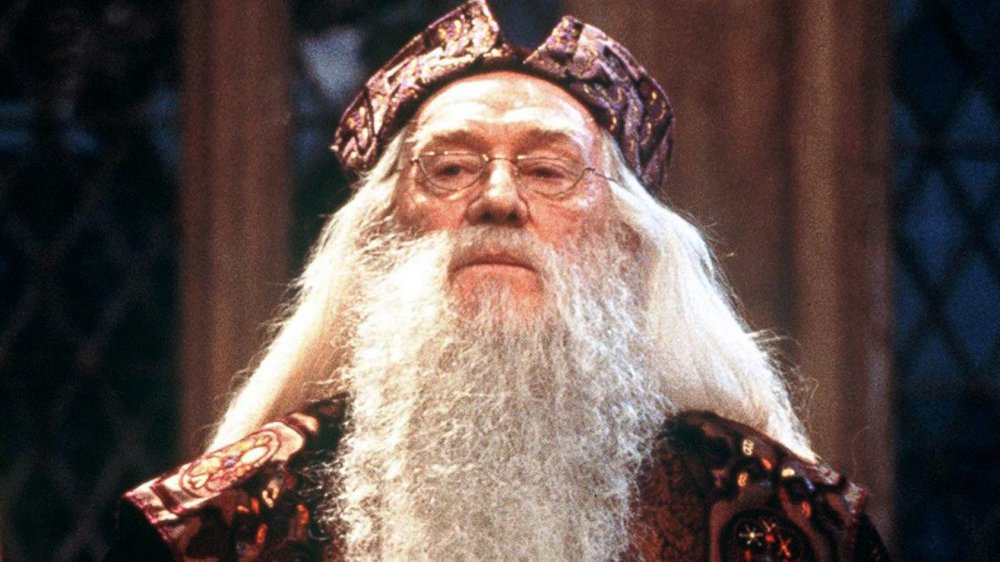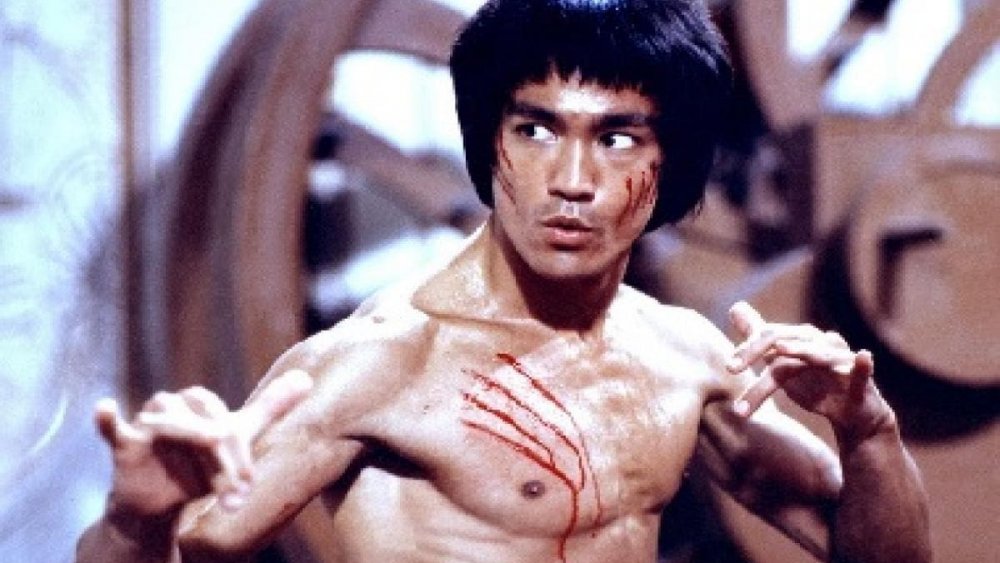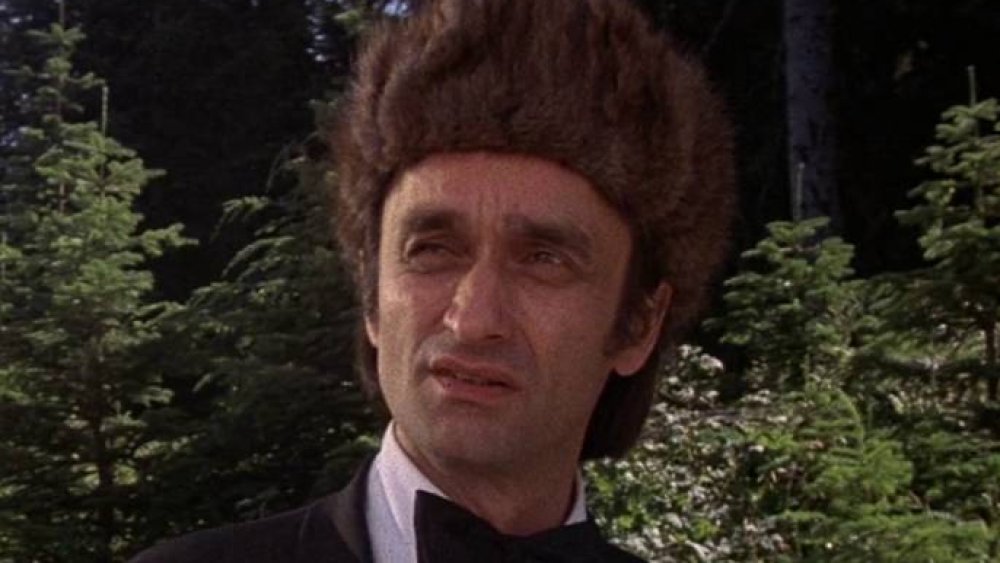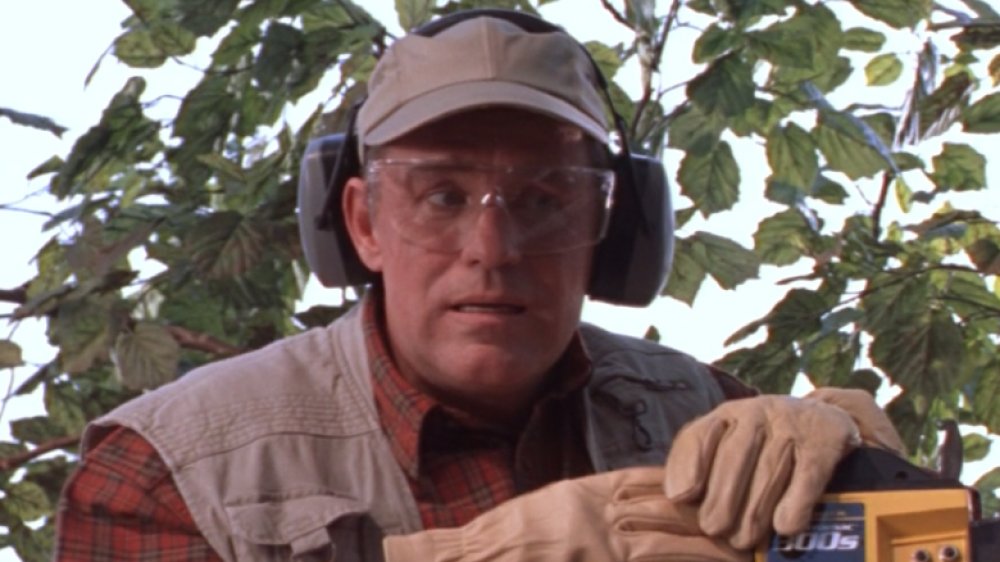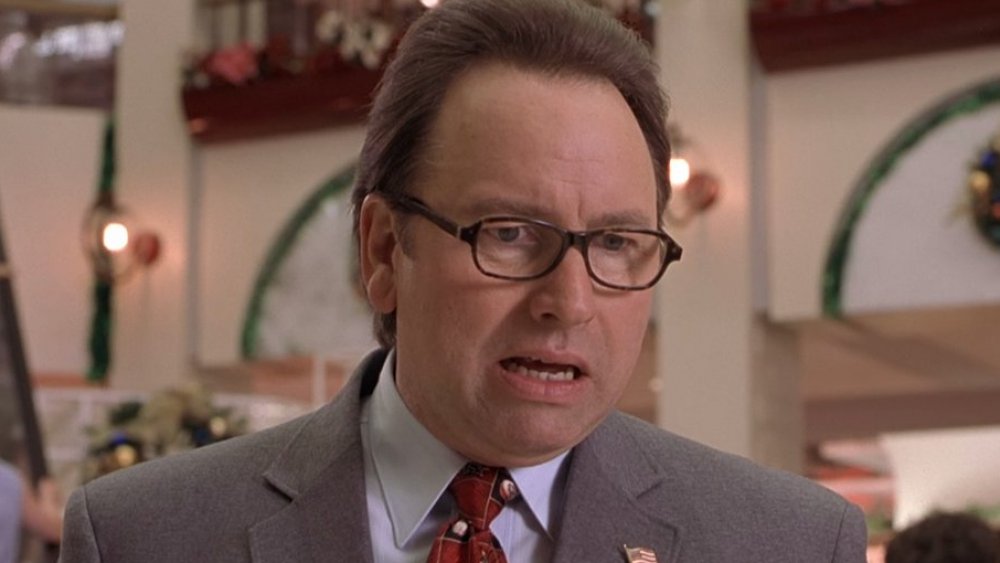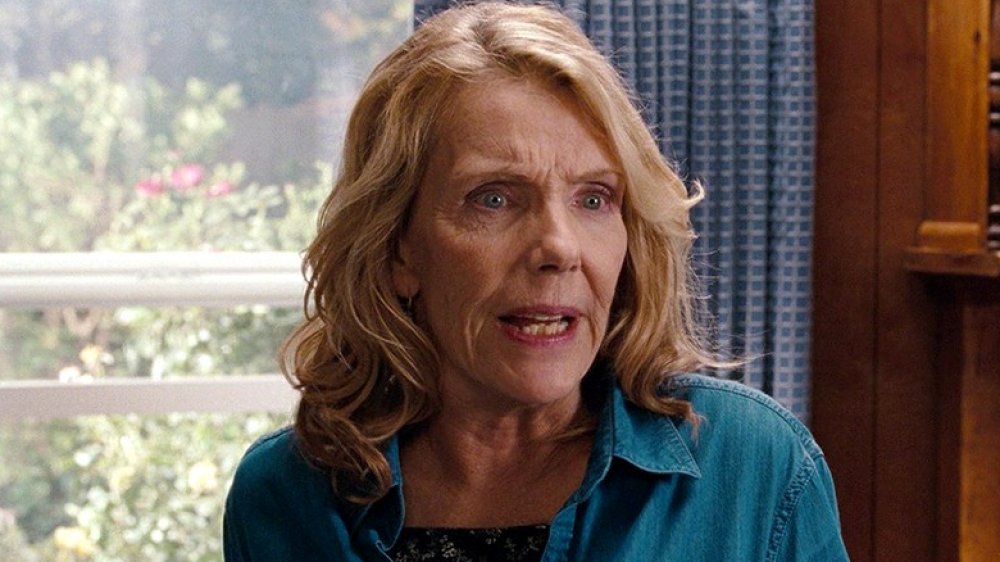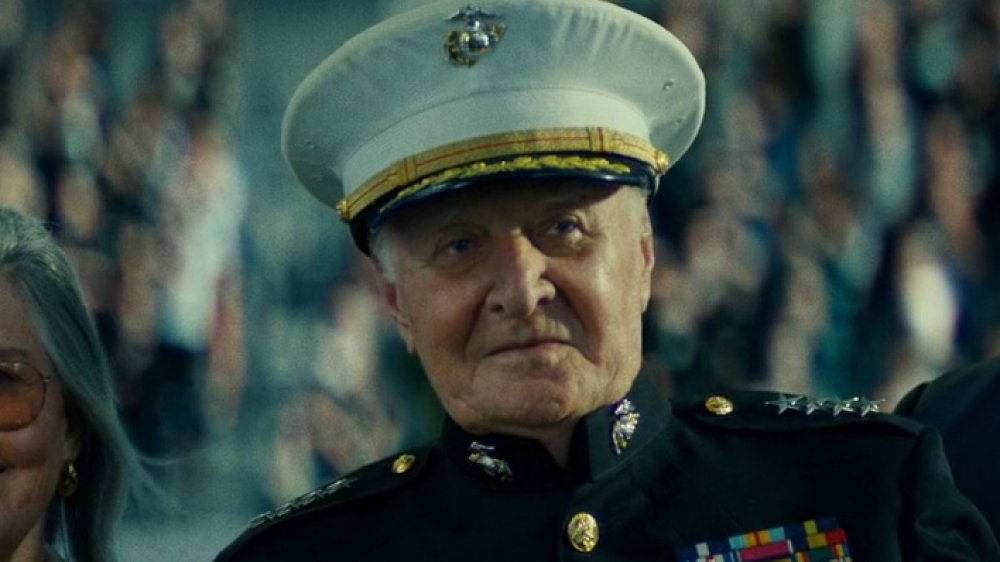Actors Who Died After Filming Box Office Hits
Acting isn't like a lot of other professions. It's generally a career of freelancing and bouncing from project to project, which means no single overriding company is there to enforce a mandatory retirement age. Actors and actresses don't have to quit acting at age 65, and nor should they — there's a wealth of roles in film and television for performers of a certain age who want to play older parents, grandparents, wizards, retirees, barons of industry, and respected leaders. If they're so inclined, performers can keep working up until they're almost dead, truly living out the old adage, "They died doing what they loved."
Then again, not only old people die. Movie stars are just like us, and the young may also fall prey to illness and accident. Performers of all ages have wrapped on a movie and then passed away, just before the release of what they may not have known would be their final film, and a big hit one at that.
Anton Yelchin died after filming Star Trek Beyond
Born in Leningrad (aka St. Petersburg) to Russian figure skaters who fled the Soviet Union over religious and political oppression, Anton Yelchin was among Hollywood's brightest rising stars of the 2010s. After some small roles on TV, he landed in the regular cast of the Showtime drama Huff and then starred in the film Charlie Bartlett before winning the role of Pavel Chekov in the big-budget reboot of the Star Trek film franchise. Yelchin voiced Clumsy Smurf in The Smurfs and its sequels while also appearing in Terminator: Salvation and the well-received horror film Green Room. He portrayed Chekov twice more, in Star Trek Into Darkness and Star Trek Beyond, which debuted with a huge $59 million opening weekend in July 2016.
That occurred scarcely a month after Yelchin's accidental and extremely untimely death. In a bizarre and sad accident early on June 19, 2016, according to The New York Times, Yelchin's SUV rolled down his driveway in Studio City, California, pinning the actor between a security fence and a brick mailbox. After he missed a planned rehearsal, friends went to his house, where they discovered the body of the 27-year-old Yelchin.
Robin Williams died after filming Night at the Museum: Secret of the Tomb
Few performers have ever (or will ever) reach the career heights or adoration levels of Robin Williams. After breaking through in the '70s as a wild, off-the-cuff stand-up comedian, he became a TV star as alien Mork on Mork & Mindy and then a star of both comedic and dramatic films in the '80s and beyond. Williams could seemingly play anybody, from a mournful college professor in Good Will Hunting (for which he won an Oscar) to a film developer-turned-stalker in One Hour Photo to a man pretending to be an old British nanny in Mrs. Doubtfire.
When an ill Williams took his own life at age 63 in 2014, his acting services remained in demand. Per The Wrap, he'd completed his scenes in four films, all of which would eventually see release. He starred in the low-key Christmas dramedy A Merry Friggin' Christmas, appeared in the indie drama Boulevard, and voiced a dog in the sci-fi comedy Absolutely Anything. Easily the highest-profile posthumous Williams film was Night at the Museum: Secret of the Tomb, the third and final installment in the trilogy of films in which museum exhibits come to life and befuddle a security guard played by Ben Stiller. Once more, Williams played American president and legendary adventurer Teddy Roosevelt. Like its predecessors, Secret of the Tomb was a huge hit, raking in $353 million from movie theaters.
Stan Lee got a few MCU cameos in before his death
The man born Stanley Lieber (per the BBC) wasn't a movie star, but he had a profound impact on film. At Marvel Comics, Stan Lee helped bring hundreds of superhero characters to life, including Spider-Man, the Incredible Hulk, Thor, Iron Man, Black Panther, the X-Men, and the Fantastic Four. When the extraordinarily successful Marvel Cinematic Universe kicked off in the late 2000s, filmmakers paid tribute to Lee by giving him a cameo in films based on his work. Quite recognizable, part of the fun of a new Marvel movie was spotting Lee hamming it up for his brief, comical appearances.
Lee passed away in November 2018 at the ripe old age of 95, but that didn't mean an immediate end to his Marvel movie cameos. According to The Independent, the makers of the not-yet-released MCU entries Captain Marvel and the fourth and final Avengers installment got their Lee cameos in the can well in advance of his death. Lee's absolutely final screen appearance came in Avengers: Endgame. When Tony Stark and Steve Rogers travel back in time to 1970, a muscle car zooms by, bearing a " 'Nuff said" bumper sticker — Lee's catchphrase from his editor letters in old Marvel comics. Lee is seen driving the car, digitally de-aged to look like a young hippie.
Philip Seymour Hoffman died after filming The Hunger Games: Mockingjay - Part 2
Not only was Philip Seymour Hoffman one of the most acclaimed actors of his generation, but he was also prolific and versatile. A four-time Academy Award nominee, he won the prize in 2006 for his role in Capote, co-starred in blockbusters like Twister and Mission: Impossible III, and appeared in some of the most acclaimed films of the '90s and 2000s, such as Magnolia, The Big Lebowski, The Talented Mr. Ripley, Almost Famous, and Punch-Drunk Love.
Hoffman, who long struggled with substance abuse issues, was discovered dead in his apartment on February 2, 2014. The cause, per the New York medical examiner's office (via CNN): an accidental overdose of drugs, with heroin, cocaine, and amphetamine found in his system. At the time of his death, per USA Today, Hoffman had nearly completed his 55-day filming schedule for Mockingjay — Part 2, the final movie in the Hunger Games quadrilogy. Hoffman's role was crucial, that of Plutarch Heavensbee, an underground revolutionary leader helping to overthrow the tyrannical government that ruled throughout the dystopian franchise. Hoffman had eight days of filming left, and director Francis Lawrence had to make adjustments, including using a stunt double for the actor when possible. Mockingjay — Part 2 went on to box office glory, earning $648 million worldwide.
Heath Ledger died after filming The Dark Knight
Australian actor Heath Ledger advanced up the Hollywood ladder rather quickly. First cast as hunks, love interests, and action heroes in movies like 10 Things I Hate About You and A Knight's Tale, by 2005, he was establishing himself as one of the best working film actors, particularly after his Oscar-nominated performance as a cowboy engaged in a secret, long-term, and ultimately tragic same-sex love affair in Brokeback Mountain. That only increased his visibility and bankability, and Christopher Nolan cast him as the Joker in The Dark Knight, the second installment in his dark and epic trilogy that thoroughly re-imagined the Batman story. Ledger completely committed himself to the role, telling The New York Times that he found it "physically and mentally draining" to portray a "psychopathic, mass-murdering, schizophrenic clown with zero empathy."
That disturbance led to severe insomnia, with Ledger treated with prescription medication. And that may have led to his death — in January 2008, the 28-year-old actor was found dead in his New York apartment. According to the New York City medical examiner (via The Guardian), Ledger died of "acute intoxication by the combined effects" of sleeping pills, painkillers, and anti-anxiety medications. About six months later, The Dark Knight was released and earned more than $530 million, making it the number-one film of 2008. In early 2009, Ledger won the Academy Award for Best Supporting Actor, which his family accepted on his behalf.
Richard Harris died after filming Harry Potter and the Chamber of Secrets
Richard Harris is the very face of "serious English actor." Technically Irish, Harris appeared in a number of well-regarded parts in a number of well-regarded movies. He earned two Academy Award nominations, one for This Sporting Life in 1963, and another for The Field in 1990. In between, he won a Golden Globe for portraying King Arthur in the film adaptation of the stage musical Camelot.
Harris joined fellow luminaries of English performing arts — Maggie Smith, Emma Thompson, John Hurt, and the like — in the cast of Harry Potter and the Sorcerer's Stone, the adaptation of the first book in J.K. Rowling's phenomenally successful series about the secret world of wizards and witches. Harris provided the warmth and gravitas necessary to portray Albus Dumbledore, the very old and long-bearded headmaster of Hogwarts School of Witchcraft and Wizardry and one of the most powerful magic-wielders of all time.
He reprised the role for the second film, Harry Potter and the Chamber of Secrets, only to be replaced by Michael Gambon in the part for the rest of the franchise. The reason: Harris passed away at age 72 in October 2002, following a two-month battle with Hodgkin's disease, per Entertainment Weekly. Chamber of Secrets hit theaters the following month and promptly earned $879 million worldwide.
Bruce Lee died after filming Enter the Dragon
Despite a tragically short career, Bruce Lee broke a lot of ground in cinema, opening doors for actors of Asian descent while also popularizing martial arts films with his unbelievable skills, moves, and fight sequences. According to History, Lee was born in San Francisco, the son of a Chinese opera star, and as a child, he appeared in around 20 Chinese films while also studying dance and kung fu. After opening a martial arts school in Seattle, he decided to try his luck in Hollywood and found his breakthrough role in 1966 on The Green Hornet as the titular hero's sidekick, Kato. With his dynamic moves, Lee usually overshadowed co-star Van Williams.
Unable to find many decent roles in the US, Lee hit the Hong Kong film industry and became a star with The Big Boss, Fist of Fury, and The Way of the Dragon, a movie he also wrote and directed. His signature film, the seminal martial arts classic Enter the Dragon, hit American movie theaters in August 1973 ... about a month after Lee died from brain edema in Hong Kong. Lee was just 32 years old, and his final film wasn't just part of his legacy but a huge hit, taking in $200 million around the world.
John Cazale died after filming The Deer Hunter
John Cazale boasts a perfect film résumé. There isn't a single commercial or critical blemish on it. In fact, every single movie in which he was part of the cast was nominated for (or won) Best Picture at the Academy Awards and all are widely regarded as classic American films and prime examples of the dark and gritty cinematic movement of the '70s.
Cazale made his big-screen debut as two-timing Fredo Corleone in The Godfather, a role he reprised in The Godfather: Part II. He also played bank robber Sal in Dog Day Afternoon, assistant Stan in The Conversation, and Stosh in The Deer Hunter. Sadly, Cazale's résumé is as flawless as it is short. In March 1978, he died of cancer at age 42 (per The New York Times), before the release of The Deer Hunter, his final film. Cazale had already received his grim terminal cancer diagnosis when filming began, and the studio wanted to replace him, as Cazale's insurance for the movie was prohibitively expensive. Co-star Robert De Niro threatened to leave the production if that happened, and he footed the bill himself. The film went on to win the Oscar for Best Picture and earned $49 million at the box office, a huge amount for a three-hour-long and psychologically harrowing drama about the Vietnam War.
Phil Hartman died after filming Small Soldiers
In comedy circles, Phil Hartman is a legend. One of the greatest performers in Saturday Night Live history (Rolling Stone ranked him #7 of all time), he played recurring characters like Frankenstein's monster, the "Anal Retentive" TV host, and the Unfrozen Caveman Lawyer and was such a reliably funny and quality comedic actor that co-stars nicknamed him "the glue." Concurrent with his time on SNL (as well as his time on the sitcom NewsRadio), Hartman voiced two of the most memorable side characters on The Simpsons: sleazy lawyer Lionel Hutz and washed-up movie star Troy McClure. As far as Hartman's own film career, his roles were generally limited to cameos and supporting parts in high-profile comedies, such as So I Married an Axe Murderer, Coneheads, and Jingle All the Way.
He landed a big-screen leading role in Small Soldiers, a movie about action figures that spring to violent life. It was a $71 million-grossing hit in the summer of 1998, released two months after Hartman's death in a murder-suicide at the hands of his wife, Brynn, who was struggling with mental illness and substance abuse.
John Ritter died after filming Bad Santa
The lines have blurred in recent years, but a generation ago, there remained "TV stars" and "movie stars." John Ritter was firmly among the former. After playing clumsy chef Jack Tripper on the mega-hit sitcom Three's Company, he starred in the miniseries adaptation Stephen King's It and the comedies Hooperman, Hearts Afire, and 8 Simple Rules for Dating My Teenage Daughter. (That doesn't even include his 100 or so other TV credits.) Ritter tried mightily to establish a career as a movie headliner, but beyond Problem Child, it didn't work out.
That is, until he met actor/filmmaker Billy Bob Thornton on the set of Hearts Afire, who cast Ritter against type as Vaughan Cunningham, a troubled dollar store manager in the stark drama Sling Blade. The two teamed up again for the raunchy comedy Bad Santa. Opposite Thornton's boozy, lascivious mall Santa, Ritter portrayed perpetually nervous mall manager Bob Chipeska. An extremely nontraditional Christmas movie, Bad Santa made $60 million at the American box office and is a perennial holiday favorite. It was released in November 2003, just over two months after 54-year-old Ritter died (per the LA Times) at a Burbank hospital of a heart ailment after experiencing vomiting, nausea, and chest pain on the set of 8 Simple Rules.
Jill Clayburgh died after filming Bridesmaids
In 1999, Entertainment Weekly placed Jill Clayburgh on its list of Hollywood's 25 Greatest Actresses, and with good reason: In the '70s and '80s, she earned critical raves for portraying women in the midst of transition. She earned back-to-back Academy Award nominations in 1979 and 1980 for her work in the thoughtful, divorce-oriented dramas An Unmarried Woman and Starting Over. By the 2000s, Clayburgh had shifted to television, her presence adding dignity and legitimacy to what could have otherwise been disposable projects, such as The Practice, Nip/Tuck, and Dirty Sexy Money.
In 2010, she made one more sensitive film drama, Love and Other Drugs, before filming Bridesmaids. Not a huge practitioner of comedy, Clayburgh got a few laughs as the mother of Kristen Wiig's Annie, a character in utter free fall. Bridesmaids went on to earn $169 million at the American box office in 2011, making it one of the most popular comedies of all time. It even earned an Oscar nomination in the Best Original Screenplay category. Unfortunately, Clayburgh didn't get to see all that. She passed away in November 2010 at age 66.
Robert Loggia died after filming Independence Day: Resurgence
The son of Italian immigrants and a Staten Island native, Robert Loggia put together a long career as a definitive "Hey, it's that guy!" type of character actor. He had credited roles in more than 200 films and TV series, dating back to a 1951 episode of the soap opera Search for Tomorrow. He seemed to be in just about everything in the '80s, specializing in portraying grizzled good guys, tough bad guys, and imposing bosses. Loggia stole scenes in An Officer and a Gentleman, Prizzi's Honor, and Jagged Edge, which earned him an Academy Award nomination for his role as private detective Sam Ransom. He's likely best known for his Emmy-nominated work as drug lord Frank Lopez in Scarface, a toy company chief in Big, mobster baker Feech La Manna on The Sopranos, and General Grey in the 1996 blockbuster Independence Day.
Loggia had completed filming his scenes as General Grey in the long-awaited sequel, Independence Day: Resurgence when he died in December 2015 at age 85. According to his wife in Variety, the actor had been coping with Alzheimer's disease for five years. While not as big of a hit as its predecessor, Independence Day: Resurgence, with Loggia onboard, made a hefty $389 million at the worldwide box office.
